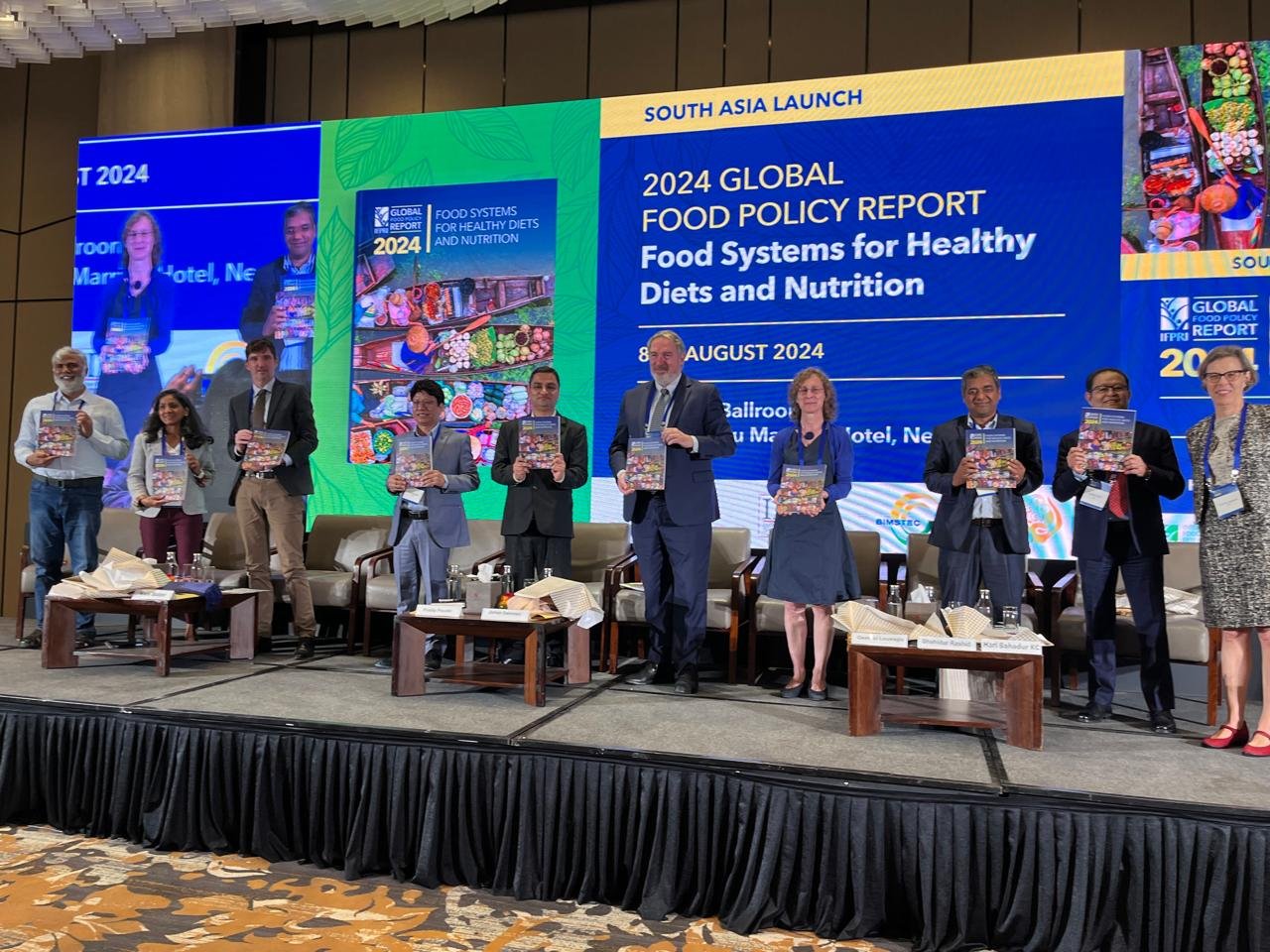Friday, 27 February 2026
Global Food Policy Report urges transformative action for healthy diets
The report highlights a slowdown in progress on reducing undernutrition and micronutrient deficiencies in low- and middle-income countries while observing a rapid rise in overweight and obesity rates The International…

The report highlights a slowdown in progress on reducing undernutrition and micronutrient deficiencies in low- and middle-income countries while observing a rapid rise in overweight and obesity rates
The International Food Policy Research Institute (IFPRI) launched the 2024 Global Food Policy Report: Food Systems for Healthy Diets and Nutrition at a South Asia regional event in Kathmandu, Nepal. Co-authored by 41 researchers from IFPRI and partner organisations, the report emphasises the urgent need for transformative actions to ensure sustainable healthy diets for all. The event was organised in collaboration with the Bay of Bengal Initiative for Multi-Sectoral Technical and Economic Cooperation (BIMSTEC), the South Asian Association for Regional Cooperation (SAARC), and the Institute for Integrated Development Studies (IIDS) in Nepal, with a focus on enhancing food security and transforming food systems in the region.
The report highlights a slowdown in progress on reducing undernutrition and micronutrient deficiencies in low- and middle-income countries while observing a rapid rise in overweight and obesity rates. This double burden of malnutrition—where undernutrition coexists with diet-related noncommunicable diseases (NCDs)—poses significant global health challenges. The report also stresses that food systems are major contributors to greenhouse gas emissions and environmental degradation, urging their transformation to reduce environmental impacts while ensuring food security. The report estimates that over 2 billion people globally, including many in South Asia, cannot afford a healthy diet, making it crucial to address affordability and accessibility to improve nutrition outcomes.
Malnutrition remains a critical issue in South Asia, with high rates of stunting and wasting in children. Reflecting on Nepal’s progress, Minister of Health and Population, Pradip Poudel, noted, “As per the Nepal Demographic and Health Survey 2022, there has been a remarkable decrease in child mortality rate and stunting went down from 57 per cent in 2001 to 25 per cent in 2022.” However, he added, “Despite the progress, a majority of women and child population still consume unhealthy foods. The food systems have an important role in delivering high-quality diet to people, and we need to review our food systems strategies and programming linkages within the health system.”
The report identifies poor diet quality as a major driver of malnutrition in the region. In Nepal and other South Asian countries, diets are heavily reliant on cereals and starchy roots, with low consumption of vegetables and other micronutrient-rich foods. This dietary imbalance contributes to persistent undernutrition and rising obesity rates. A significant portion of Nepal’s population also faces affordability constraints, with nutrient-rich foods remaining out of reach for many. Addressing these barriers is crucial for improving health and nutrition.
Technology
Ingredion Thailand Achieves 100% Sustainably Sourced Cassava
Feb 27, 2026 | Company News
Deakin University and Bellarine Foods Partner to Develop Sustainable Marine-Derived Proteins
Feb 26, 2026 | Australia
Royal Unveils Refreshed Jute Bag Design for 20lb Authentic Basmati
Feb 25, 2026 | Company News
Food Testing
Australian Medical Bodies Push for Compulsory Health Star Labelling
Feb 24, 2026 | Australia
Tim Hortons Singapore Secures Majlis Ugama Islam Singapura Halal Certification Ahead of Ramadan
Feb 23, 2026 | Company News
More Popular
Fagron Acquires Pharmavit Europe for €68Mn to Expand Nutraceutical Portfolio
Feb 27, 2026 | Company News
Arla Foods Invests EUR 300Mn in New Cheese Dairy in Sweden
Feb 27, 2026 | Company News
Beyond Meat Broadens Portfolio Beyond Protein with Sparkling Plant-Based Drink Line
Feb 27, 2026 | Beverages






